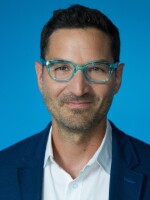MICHELE NORRIS, host:
From NPR News, this is ALL THINGS CONSIDERED. I'm Michele Norris.
MELISSA BLOCK, host:
And I'm Melissa Block.
U.S. Defense Secretary Robert Gates could barely hide his frustration today. Speaking at NATO's annual meeting in Brussels, he asked alliance members to send more of their own troops to Afghanistan. Meanwhile, NATO has agreed to begin training security forces in Kosovo later this year. Kosovo recently declared its independence from Serbia.
NPR's Guy Raz has more from Brussels.
GUY RAZ: The priorities of NATO now seem to be divided into two categories: the issues the United States cares most about, like Afghanistan, and those that the other NATO member's states care about, like Kosovo. On Afghanistan, the Bush administration argues NATO isn't pulling its weight. Here's Secretary Gates.
Secretary ROBERT GATES (U.S. Department of Defense): I made my usual speech about the importance of Alliance members meeting their defense commitments.
RAZ: It's a well-worn theme for the U.S. at these NATO meetings.
Sec. GATES: It was kind of same old songs, so...
RAZ: NATO officials seemed to listen politely and then move on to other matters. Many of the member states, with a few notable exceptions, like Britain, are more focused on Kosovo at the moment. NATO has decided to begin training Kosovo's nascent security forces, for example.
Here's NATO's secretary general, Jaap de Hoop Scheffer.
Secretary General JAAP DE HOOP SCHEFFER (NATO): With this decision, NATO will be able to assist Kosovo in building necessary democratic security institutions.
RAZ: This weekend Kosovo's constitution goes into effect. But it is still, by default, governed by the United Nations. The U.N. has been the government in Kosovo since 1999. There are also a few thousand NATO troops there. Now the European Union hopes to replace both the U.N. and NATO in Kosovo sometime this year with a small contingent of its own troops. This NATO ministerial meeting is supposed to be the most important of the year, yet there was little indication that the question of Afghanistan and who contributes what was resolved.
Here's Vice Admiral Kevin Sullivan, the U.S. military liaison to NATO.
Vice Admiral KEVIN SULLIVAN (U.S. Liaison): We, the United States, have been leading the way in trying to encourage the other members of the Alliance to contribute more forces to the efforts so that we can begin to cover these areas that are - we simply don't have enough forces to cover now.
RAZ: Sullivan says the biggest problem in Afghanistan now is sealing the porous border with Pakistan. U.S. military commanders say they need at least three more battalions or about 4,000 troops to secure that boarder. There's no sense NATO will come to the rescue anytime soon. Many NATO leaders now seem distracted by the U.S. election and the realization that this meeting was the last one for the Bush administration.
Guy Raz, NPR News at NATO Headquarters in Brussels. Transcript provided by NPR, Copyright NPR.






